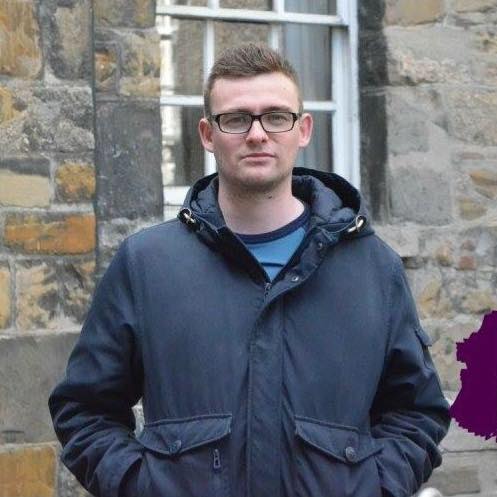Bryan Mallon, one of three candidates in this year’s race for President of Trinity College Dublin Students’ Union (TCDSU), has apologised in a conversation with The University Times for the content of tweets he posted in the past.
Mallon, a final-year Irish studies student, stated that posts he had made on social media site Twitter up to and including the 2014-15 academic year had contained “generally derogatory terms towards women”, including the probable use of ‘rape’ in the “wrong context”.
While stating that he had recently been shown “a few tweets”, Mallon could not recall the exact wording of the tweets in question “as it was quite a while back”. He said that any use of “rape” was in a sporting context, citing an example involving playing the video game FIFA where one player is said to have raped the other. Mallon also admitted that the word “retard” may have been used too, “which isn’t right … that’s wrong”.
The TCDSU presidential candidate condemned the content of the tweets “utterly”, emphasising that he “apologise[s]” for making such comments before noting that such incidences can help to shed light on issues of sexism and the use of offensive language.
“I have no problem with admitting that I’m fully transparent and accountable with this issue and I think that highlighting that I was like that before can actually ensure that people see that these things are wrong and that we can actually make this better for women specifically and other minority groups.”
In a statement on his Facebook page, Mallon stated that he felt the tweets “are relevant to my Student Union election campaign”.
“Firstly, let me say that the attitudes they embody are completely and fundamentally wrong – because they are completely and fundamentally harmful in numerous ways. I acknowledge that when I wrote these words I was 100 per cent, and without qualification, wrong”, Mallon stated. “Specifically, the attitudes expressed are harmful to women. Unfortunately, they are not at all uncommon and are even thought of as acceptable in a culture I found myself shaped by before I came to grow more as a person. The fact that they are acceptable anywhere is a problem. Since I have come from such a culture I think I have some understanding about what needs to be done to tackle those attitudes.”
Speaking to The University Times, Mallon pointed to the influence of his “country background” and “lad culture” in the perpetuation of some attitudes included in the tweets. He stated that he was still very much “of that mindset” when he posted the tweets in question, viewing it as one “where you’re not open to these issues” and “you don’t even talk about them”.
Mallon stated that getting involved in college life in Trinity helped to “enlighten” him and understand the issues surrounding consent and sexism. In a previous interview with The University Times, Mallon brought up the fact that his views had changed, stating that “I can frankly say some things I might have said in the past were ridiculous” when asked about his views on the consent campaign in Trinity, but that “being at Trinity has educated me, I think”.
“A lot of lads would say the same, and Trinity has changed that for me”.
In this earlier interview stated that “a lot of lads … do go on in a fashion that is just not right” and that by looking at the changes that he and others have made, “we can continue that process so that in a few years women will be treated equally in every sense of the word”.
“Since I wrote those tweets I have had my own internal struggles. Since I began to understand how harmful those attitudes toward women could be I have undergone a change. Internally this involved a lot of reflection. Externally, at the end of that reflection, it has meant changing myself. I feel the small contribution I made to Feminists of Trinity last year is reflective of the change in my attitudes”, Mallon’s Facebook post continued.
When asked whether the tweets made on his profile, which has since been deleted, contained any homophobic material, Mallon replied: “No, I don’t think so. Maybe I could be wrong, I don’t know what I said.” While Mallon could not say definitively if he had tweeted homophobic content or not, he said that he would “utterly condemn” anyone who accused him of being homophobic, pointing to the canvassing he had done on behalf of the yes campaign ahead of the 2015 marriage equality referendum.
On this issue, Mallon was dubious as to whether someone who may leak pictures of homophobic tweets he may have sent would also promote tweets he had made which show him “endorsing a yes vote and show me saying how proud I was that this country democratically voted and was the first country to democratically vote for marriage equality”.
“People, again, use the word gay in the wrong context, that’s not right either, you know. Maybe that was used, I’m not sure, but I’m going to utterly condemn … people who are going to attack me for being homophobic.”
Concluding the interview, Mallon stated that the issue at hand is a “far wider” one than just tweets that he had made, saying that such language is “used a lot everywhere” and that there are people who “don’t see the harm in it”.
Remarking that “words can actually have as great or as bad an impact as actions”, Mallon added that “it’s these words that actually provide the bedrock for sexist attitudes, racist attitudes, and, well, unconsensual attitudes”.







